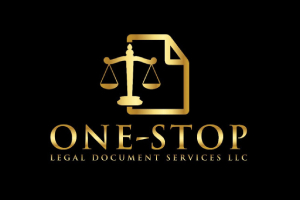Navigating the Legal Landscape of Real Estate: Ensuring Clarity, Security, and Protection
Introduction:
In the world of real estate, where contracts are forged, assets are transferred, and dreams are realized, the importance of understanding the legal intricacies of property transactions cannot be overstated. For both buyer and seller, landlord and tenant, a comprehensive comprehension of the legal documentation involved is essential to safeguarding one’s interests and fostering a smooth and secure process. In this paper, we delve into the key pillars of real estate law, shedding light on the fundamental components that underpin these crucial transactions—namely, deeds, mortgages, title insurance policies, property tax assessment notices, homeowner’s insurance policies, and lease agreements.
With the advent of the information age and remarkable advancements in technology, opportunities to engage in real estate transactions have multiplied exponentially. However, along with these opportunities come the complexities and inherent risks associated with such ventures. It is incumbent upon us, as diligent professionals and informed individuals, to grasp the intricacies of these legal instruments and understand their implications in order to navigate the vast sea of real estate with confidence and peace of mind.
1. Deed:
At the heart of any real estate transfer lies the deed, a document that certifies ownership rights and records the transfer of property from one party to another. A deed acts as an irrefutable testimony, substantiating the intent of the parties involved and ensuring that the buyer receives clear and marketable title to the property. Understanding the various types of deeds, such as warranty deeds, quitclaim deeds, or special warranty deeds, is crucial to protecting one’s interests, avoiding liens or encumbrances, and ensuring a seamless transfer of ownership.
2. Mortgage:
For many individuals aspiring to purchase real estate, a mortgage is an indispensable financial tool. It not only facilitates property acquisition but also warrants the lender’s interest in the property. A comprehensive comprehension of the mortgage agreement, including its terms, conditions, and payment obligations, is indispensable for buyers. Equally important is an awareness of the legal implications and remedies available to both borrowers and lenders in the event of non-payment or default.
3. Title Insurance Policy:
In the realm of real estate, where the adage “buyer beware” holds great significance, title insurance plays an instrumental role in mitigating risks associated with liens, encumbrances, or defects in a property’s title. A title insurance policy serves as a safeguard, providing peace of mind to property owners and lenders alike. Understanding the scope of coverage, conditions, and potential exclusions is vital when selecting or interpreting a title insurance policy’s terms.
4. Property Tax Assessment Notice:
The financial obligations of property ownership extend beyond the purchase price, with property taxes constituting a significant burden. Property tax assessment notices serve as official documentation from local authorities, outlining the assessed value of a property and the corresponding tax obligations. Acquiring a comprehensive understanding of the property tax assessment process is essential for homeowners, enabling them to verify the accuracy of the assessment and, if necessary, take appropriate steps for redress.
5. Homeowner’s Insurance Policy:
Homeownership is often regarded as a sanctuary—a haven where families seek solace, security, and peace of mind. A homeowner’s insurance policy acts as a fortress, shielding property owners from unforeseen perils such as fire, theft, or natural disasters. Familiarity with the coverage provisions, limits, and exclusions outlined in the policy is essential for homeowners to protect their investments effectively.
6. Lease Agreement:
In the realm of tenancy, a lease agreement establishes legally binding responsibilities and rights between tenants and landlords. Whether it pertains to residential or commercial property, understanding the terms, conditions, and obligations stipulated in a lease agreement empowers parties to negotiate fair arrangements, avoid misunderstandings, and protect their respective interests.
By arming ourselves with knowledge about these intrinsic components of real estate law, we can confidently navigate the ever-evolving landscape of property transactions. Through this exploration, we aim to enhance our understanding and ensure that our legal footing remains secure and unwavering in this dynamic domain of real estate.


